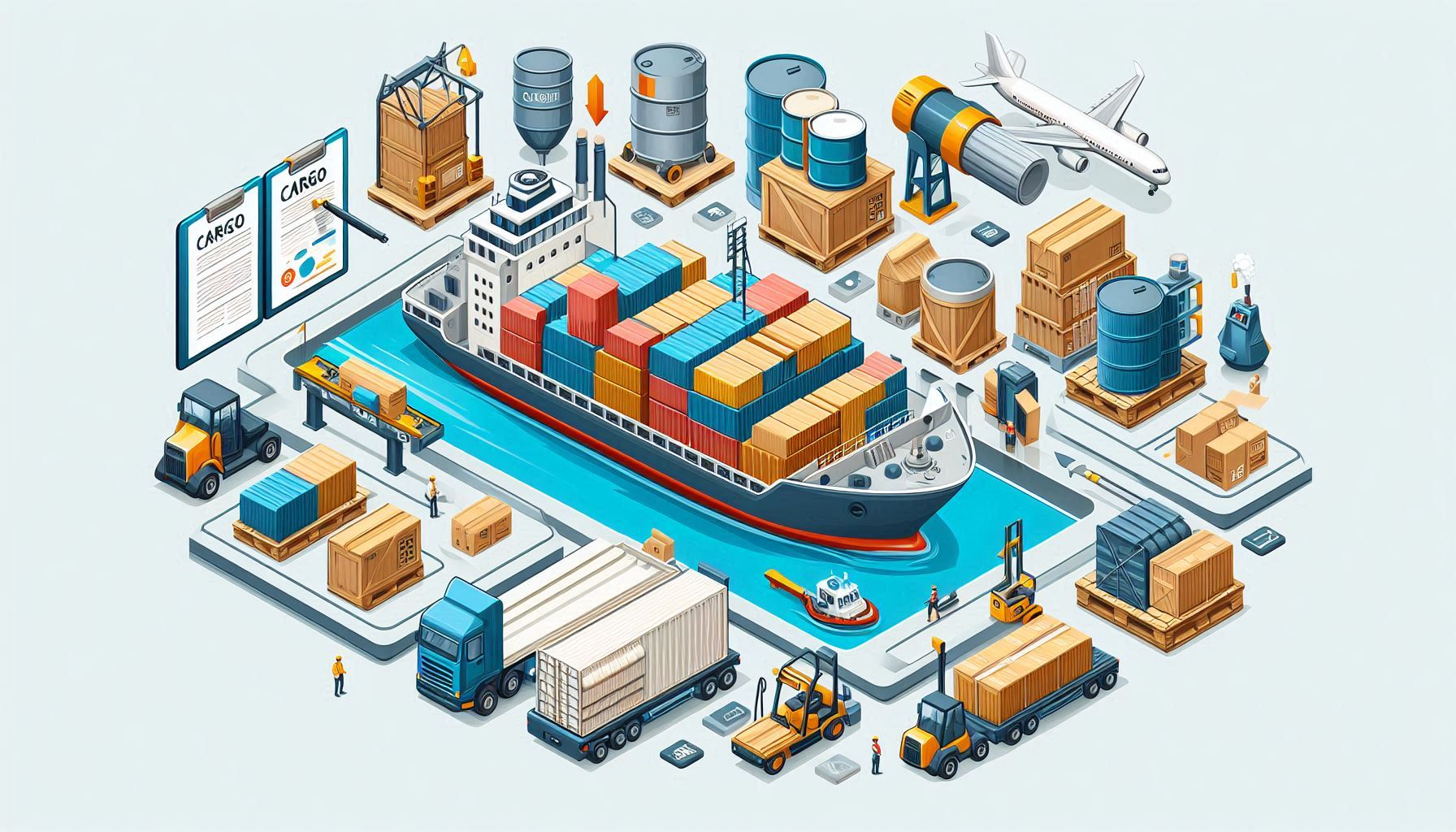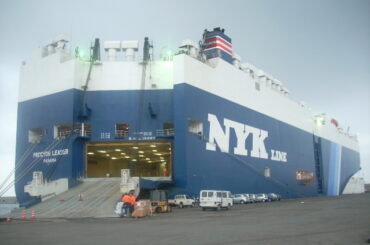When it comes to shipping, you may have heard the term “Freight All Kinds” (FAK) being thrown around, but what exactly does it mean for the logistics industry? Understanding the significance of FAK in shipping can open up a world of possibilities with regard to streamlining operations, optimizing costs, and improving overall efficiency. So, let’s unpack this concept a bit further and explore how FAK is revolutionizing the way goods are transported globally.
Origins of FAK in Shipping
The origins of Freight All Kinds (FAK) in shipping can be traced back to the mid-20th century when the need for a more flexible and efficient way of categorizing various goods for transportation arose.
In the historical context of the shipping industry evolution during that period, traditional methods of categorizing goods based on specific characteristics or dimensions were proving to be inadequate for the growing complexity of global trade.
As a response to this challenge, FAK emerged as a solution that allowed for a broader classification encompassing a wide range of goods under a single tariff.
This shift marked a significant turning point in the industry, enabling greater adaptability to the diverse nature of cargo being transported.
The evolution of FAK reflected a pragmatic approach to streamlining logistics processes and simplifying pricing structures, ultimately enhancing operational efficiency for both shippers and carriers.
The concept of FAK continues to play a vital role in modern shipping practices, shaping the way goods are categorized and transported across the supply chain.
Definition and Scope of FAK
Frequently overlooked in shipping discussions, Freight All Kinds (FAK) represents a pivotal concept that revolutionized how goods are categorized for transportation. FAK allows for a simplified approach to freight classification by enabling shippers to consolidate various types of cargo under one classification. This means that goods of different sizes, shapes, weights, and values can be grouped together for shipping purposes, streamlining the logistics process.
The scope of FAK extends to cargo consolidation, where multiple shipments from different shippers are combined into a single shipment. This method optimizes space utilization and can lead to cost savings for both shippers and carriers.
By utilizing FAK, shippers can benefit from economies of scale, as larger consolidated shipments often result in lower transportation costs per unit.
In essence, FAK broadens the possibilities for shippers by offering flexibility in categorizing goods and optimizing cargo consolidation. This innovative approach has greatly impacted the shipping industry by simplifying freight classification and enhancing efficiency in transporting diverse types of cargo.
Advantages of FAK Shipping
With Freight All Kinds (FAK) shipping, you gain a strategic advantage in the logistics arena.
One of the key advantages of FAK shipping is cost efficiency. By consolidating various types of cargo under a single rate, FAK allows for more economical transportation of goods. This cost-effective approach can result in significant savings for businesses, especially those shipping diverse or irregularly sized items.
Another advantage of FAK shipping is the flexibility it offers regarding shipping. With FAK, you have the ability to transport a wide range of commodities without the need to negotiate separate rates for each type of cargo. This streamlined process not only saves time but also simplifies the logistics involved in managing shipments of different kinds.
Implementing FAK in Logistics
Considering implementing Freight All Kinds (FAK) in your logistics operations? FAK implementation can bring significant benefits to your supply chain.
To optimize logistics using FAK, start by evaluating your current shipping patterns and identifying where FAK could streamline operations. FAK allows you to group various freight types under a single classification, simplifying the billing process and potentially reducing costs.
Implementing FAK requires close collaboration with carriers to negotiate favorable rates based on the combined volume of shipments. It’s crucial to guarantee that your logistics team is well-trained on FAK guidelines to accurately classify shipments and maximize cost savings.
Additionally, monitoring and analyzing the performance of FAK shipments can help identify areas for further optimization. By incorporating FAK into your logistics strategy, you can enhance efficiency, reduce complexities in billing, and achieve cost savings across your supply chain.
Optimize your logistics operations today with FAK implementation.
To further enhance your understanding, make certain to leverage the expertise of a shipping agent who can provide valuable insights and assistance in maneuvering the complexities of international shipping regulations.
FAK Rates and Billing
To optimize your logistics operations effectively with Freight All Kinds (FAK), understanding FAK rates and billing is vital. FAK pricing is based on a predetermined rate rather than individual shipment characteristics. This simplifies the billing process by categorizing shipments under one umbrella rate, making it easier to manage your shipping costs.
FAK contracts are negotiated agreements between shippers and carriers that outline the terms and conditions of using FAK rates. These contracts specify the agreed-upon rates for different shipment types and volumes, providing clarity and predictability in pricing.
When utilizing FAK rates, it’s important to carefully review and understand the terms of your FAK contract. This guarantees that you’re aware of any surcharges, discounts, or additional fees that may apply to your shipments.
Challenges and Considerations of FAK
Steering through the domain of Freight All Kinds (FAK) comes with various challenges and considerations that demand careful attention.
When dealing with FAK shipments, one of the key challenges is maneuvering the complex FAK regulations set by carriers. These regulations outline the specific requirements and limitations associated with FAK cargo, such as size, weight, and packaging restrictions. Confirming compliance with these regulations is vital to avoid delays or additional charges.
Another important consideration is the accurate and thorough documentation required for FAK shipments. FAK documentation must clearly detail the contents of the shipment, including any special handling instructions or hazardous materials information. Inaccurate or incomplete documentation can lead to customs issues, fines, or even the rejection of the shipment by carriers.
To overcome these challenges, it’s essential to work closely with experienced logistics partners who understand the nuances of FAK regulations and documentation requirements.
Frequently Asked Questions
How Does FAK Shipping Impact Small Businesses?
For small businesses, FAK shipping can boost cost efficiency by offering flexibility in shipping various goods together. This method streamlines processes, reduces expenses, and simplifies logistics. Embracing FAK can optimize operations and enhance competitiveness in the market.
Can FAK Rates Be Negotiated With Carriers?
When negotiating FAK rates with carriers, strengthen your relationships for favorable terms. Discuss volume commitments and service expectations. Analyze market conditions to leverage competitive rates. Maintain open communication to adapt agreements as needed for mutual benefit.
Are There Specific Industries That Benefit Most From FAK?
In the transportation industry, the automotive sector and retail businesses stand out as major beneficiaries of FAK rates due to their diverse shipping needs. They leverage FAK to streamline costs and simplify logistics processes effectively.
What Are the Environmental Implications of FAK Shipping?
When considering FAK shipping, you’ll find that it impacts the environment by affecting carbon footprints. By grouping diverse freight types together, it enhances shipping efficiency. This consolidation reduces emissions and optimizes transportation resources, contributing to sustainable practices.
How Does FAK Affect Customs Clearance Processes?
When dealing with FAK, customs clearance processes can be impacted. You’ll need to guarantee accurate customs documentation for duty assessment. Lack of clarity in FAK shipments may lead to delays or additional inspections during customs clearance.







